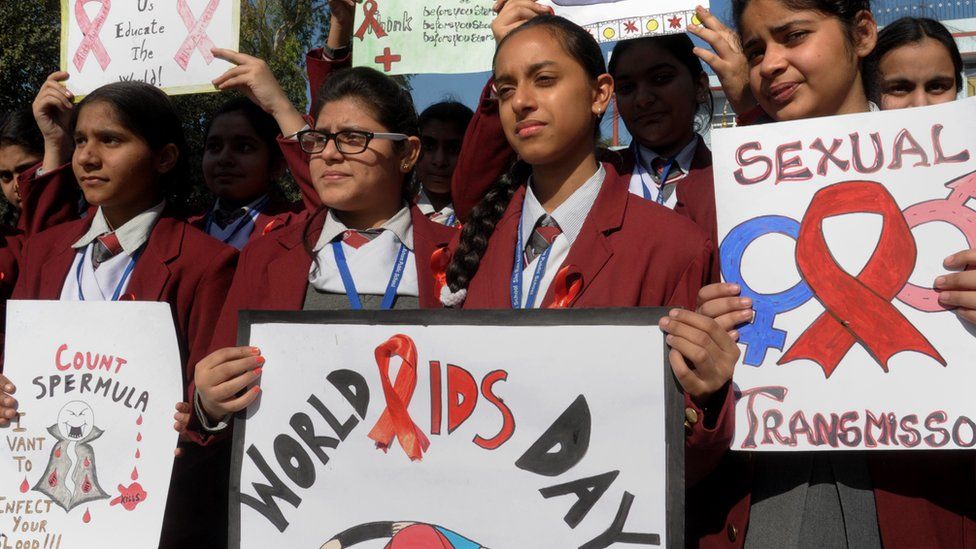India officials investigate if fake doctor spread HIV
- Published

Indian officials are investigating claims that a fake doctor in the northern state of Uttar Pradesh has infected at least 33 people with HIV with a used syringe.
The unqualified practitioner allegedly used one syringe, which he recycled to treat colds and the flu.
Federal health officials will visit Unnao district, where the incident occurred, to investigate the matter.
The suspect reportedly charged 10 rupees (11p; 15 cents) for each jab.
It is not clear how many of the confirmed cases were contracted from the alleged used syringe.
"Medical research shows that the spread of HIV through infected needles could be just 0.3% as the virus cannot survive in open air," Dr Tanymay Kakkad, a member of the investigating team, told The Indian Express newspaper.
The 33 people confirmed with HIV were among 566 people who were tested at a screening camp organised by the government, health officials told Reuters.
"We ask HIV patients various things to know the source of infection," SP Choudhary, a senior medical officer said.
"When we asked these patients whether they had used common syringes, some of them told us about a doctor they went to who uses the same syringe on all his patients."
Local police are also probing the matter, and are on the lookout for the suspect who is believed to be in hiding.
The state's health minister, Sidharth Nath Singh, said that many truck drivers in the area are also carriers of the disease, implying that this could be another reason.
"As far as the case of anyone giving injections without a licence is concerned, strict action will be taken against them," he added.
India has seen a 50% decline in the number of new HIV infections over the last decade, according to a UN report, which also said that the most persistent source is mother-to-child transmission.
Unqualified medical practitioners in India are routinely arrested for posing as doctors - a shortage of official doctors leads many to seek out these so-called "quacks". Around 45% of medical practitioners in India are not formally trained, according to the Indian Medical Association.
- Published11 October 2016
- Published9 June 2016
- Published30 August 2016